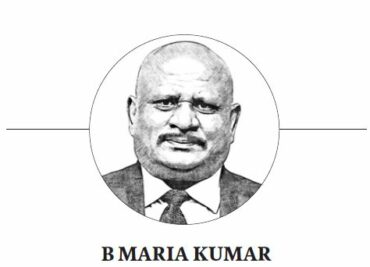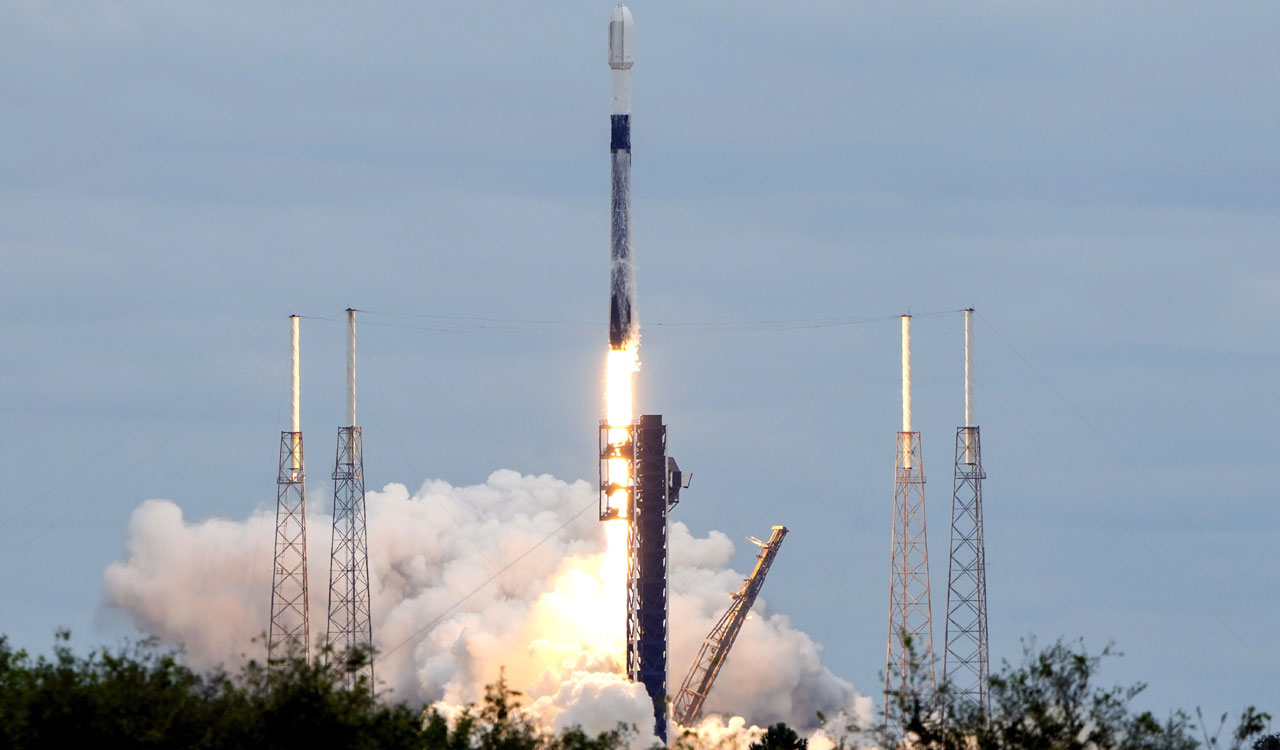Opinion: Wars Vs Ethics
Empathy, morality and ethical education are crucial to avoid repeating humanity’s darkest chapters

By B Maria Kumar
Nowadays, it is becoming increasingly evident that the world we live in no longer worries about AI-enhanced wars but instead seems fearful of embracing ethical and humanitarian principles. Amid the ongoing rhetoric of heightened tensions, alongside escalating conflicts in Eastern Europe and the Middle East, many people appear unconcerned about the looming threat of an extreme confrontation. Instead, they are hesitant to stand by moral values. Though the present moment is undeniably critical, such warnings have been voiced to the world for decades.
Warnings of the Past
In 1946, Aldous Huxley, renowned author of ‘Brave New World’, cautioned about the potential nuclear destruction of the planet if unchecked research in physics and chemistry continued. James Lovelock, the originator of the Gaia hypothesis, predicted that 80% of humanity could perish by the end of the 21st century if ecological destruction was not halted. Louis Del Monte, a celebrated physicist, anticipated that machine intelligence would surpass the combined intelligence of all humans by 2045.
Similarly, Stephen Hawking warned that even a major accident involving mindless AI technologies could lead to a nuclear war, potentially ending human civilisation. Elon Musk, the founder of SpaceX and co-founder of Tesla and Neuralink, proposed colonising Mars to provide humanity an escape route in the event of a global catastrophe caused by AI.
Reliable estimates suggest that the current stockpiles of nuclear missiles in the world are sufficient to destroy the entire planet. Given these realities, the current state of war affairs demands urgent, remedial measures, including a people-centred strategy to ensure peace, particularly through ethics-driven choices and responsible actions. In this defining moment, we must heed the warnings of the past and take proactive steps to secure a future where human ingenuity is guided by wisdom and morality.
Lessons for Humanity
Wars, regardless of scale, are blots on human dignity. Viktor E Frankl, an Austrian psychiatrist and Holocaust survivor, described the horrors of the Auschwitz concentration camp and the first atomic bombing of Hiroshima as two major lessons for humanity. He highlighted the need for vigilance to prevent such inhuman acts. Similarly, Dr Haim Ginott, an Israeli-American parent-teacher educator, in his ‘First Day of School Request’, urged teachers to educate children on becoming humane rather than merely skilled professionals. Both Frankl and Ginott emphasised that empathy, morality and ethical education are crucial to avoid repeating humanity’s darkest chapters.
In this defining moment, we must heed the warnings of the past and take proactive steps to secure a future where human ingenuity is guided by wisdom and morality
There is an intriguing legend in Greek mythology that serves as a powerful reminder of the pivotal role of prudent conduct in wielding dangerous technologies. It is the story of a boy called Phaeton who was the son of the Sun god Apollo and a mortal woman. One day, Phaeton wanted to impress his classmates in school by proving his divine lineage. Determined to meet his father, he embarked on a challenging journey to reach the eastern mountains where Apollo resided. As he approached, the dazzling rays of his father’s presence made the heat unbearable, but Apollo eased his brightness upon seeing his son.
After a warm reunion, Apollo offered to grant Phaeton anything he wished. Eager to showcase his power, Phaeton asked to ride his father’s chariot for a day so that his friends on Earth could witness his might as the son of a god. Apollo, however, was alarmed by this request. He tried to dissuade his son, explaining that guiding the celestial horses required great caution and altruistic intent to protect the Earth. But Phaeton was stubborn, and Apollo eventually relented. He gave Phaeton instructions on how to handle the reins and urged him to ride with utmost care.
The next morning, Phaeton set out to drive the Sun chariot. Desiring to be seen by his friends, he flew dangerously low, causing Africa to be scorched under the searing heat. In panic, he pulled the reins too hard, sending the chariot soaring to maximum heights, which torched Olympus, the home of the gods. Witnessing the chaos, Zeus, the king of gods, was furious at the rash young boy. He struck Phaeton down with a thunderbolt, ending his ill-fated life instantly. Because of Phaeton’s careless misuse of power, the innocent Earth suffered, engulfed in flames, leading to insurmountable losses of human lives and resources.
This myth holds a timeless message for us. The celestial horses, powerful and difficult to control, resemble today’s rapidly advancing AI-driven technologies while Phaeton represents humankind’s reckless tendencies. Just like Phaeton, many of today’s preteens, teenagers and young adults are eager to get their hands on high-tech gadgets without fully understanding the potential dangers, especially when these AI-powered devices are used unwisely and unethically.
Role of Morality
Research consistently highlights that the ethical upbringing of children plays a crucial role in shaping them into morally strong individuals. A major UK study confirmed that raising children in an environment emphasising good behaviour can foster high ethical standards in their lives. The study tracked a group of 700 young people, aged 13 to 17, over a five-year period, and found an inverse relationship between morality and criminal behaviour. In their book ‘Breaking Rules’, Wikstrom, Oberwittler, Treiber and Hardie explained the vital contribution of morality to character building.
Their findings revealed that the young people, most prone to criminal behaviour, were those who spent their adolescence unsupervised, making them vulnerable to opportunities for crime. On the other hand, those who were crime-averse resisted these opportunities because they had developed robust personal ethics over time through positive socialisation. In addition, behavioural interventions like compassion training and a humane mindset boost ethical decision-making.
Ego often obstructs a humanistic approach, leading to conflicts. Mindful awareness and empathy, among other initiatives, can overcome ego-induced barriers, end violence and foster peace.

(The author, IPS (Retd), is a winner of National Rajbhasha Gaurav Award for 2022-23)
Related News
-
Telangana techie loses Rs 4.15 lakh to online gold trading fraud
4 mins ago -
Hyderabad: Couple working as house help at doctor’s residence held for theft
19 mins ago -
Hyderabad auto driver foils attempt to kidnap young woman, five held
1 hour ago -
Haiti gang attack on journalists covering hospital reopening leaves 2 dead, several wounded
2 hours ago -
21 dead as Mozambique erupts in violence after election court ruling
3 hours ago -
Cartoon Today on December 25, 2024
10 hours ago -
Sandhya Theatre stampede case: Allu Arjun questioned for 3 hours by Chikkadpallly police
11 hours ago -
Telangana: TRSMA pitches for 15% school fee hike and Right to Fee Collection Act
11 hours ago




